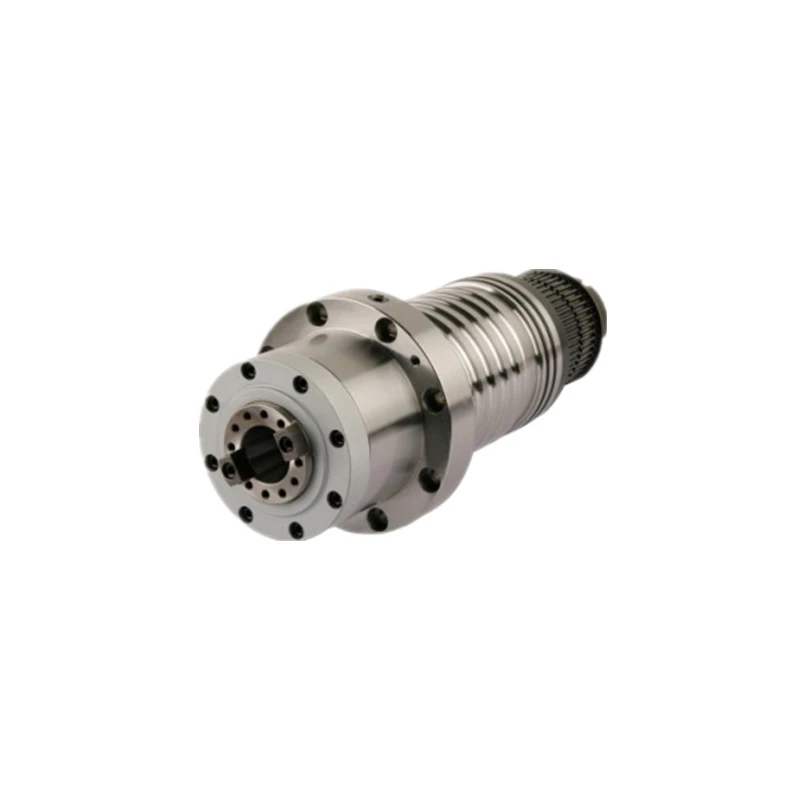12 月 . 10, 2024 15:45 Back to list
Motor Spindles Demystified: An Essential Component for Success
Motor spindles are a cornerstone of modern manufacturing, delivering the precision and efficiency needed for today’s demanding applications. Whether you’re working with high frequency motor spindles, high speed spindle motors, or integrating them into spindle motor CNC systems, understanding their role and selecting the right model is critical to achieving optimal results. This article unpacks the key features, benefits, and considerations for motor spindles in production lines.
High Frequency Motor Spindles: Precision and Stability in Action
High frequency motor spindles are engineered for tasks that require exceptional precision and consistency. These spindles operate at elevated speeds, making them ideal for intricate applications such as fine milling, engraving, and micromachining. Their design minimizes vibration, ensuring a smooth finish even on delicate materials like aluminum or composite layers.
Incorporating advanced technologies such as air bearings and dynamic balancing, high frequency spindle motors deliver unparalleled stability. This precision is indispensable in industries like aerospace, where tight tolerances and exact specifications are non-negotiable. Additionally, their compact and lightweight build allows for seamless integration into various CNC systems.
High Speed Spindle Motors for Versatility Across Industries
For operations requiring rapid material removal and versatility, high speed spindle motors are the go-to solution. These motors are specifically designed to maintain high torque at elevated rotational speeds, making them suitable for cutting, drilling, and polishing a wide range of materials, including metals, plastics, and ceramics.
A standout feature of high speed motor spindles is their adaptability. They are often paired with automation systems for high-volume production, ensuring consistent output without compromising quality. The ability to switch between tasks effortlessly makes these spindles a favorite in automotive and consumer electronics manufacturing.
Integrating Spindle Motor CNC Systems: Precision Meets Automation
Modern manufacturing has seen a significant shift toward automation, with spindle motor CNC systems at the forefront. These systems combine the precision of high-performance spindles with the programmability of CNC machines, enabling complex operations with minimal human intervention. From multi-axis machining to intricate carving, the possibilities are virtually limitless.
Spindle motor CNC setups often include smart features such as temperature monitoring and adaptive control, which adjust spindle speed based on real-time conditions. These enhancements not only extend tool life but also reduce downtime, boosting overall productivity. Such innovations are essential in industries like medical device manufacturing, where accuracy and reliability are paramount.
High Frequency vs. High Speed Motor Spindles: Making the Right Choice
Choosing between high frequency spindle motors and high speed motor spindles depends largely on the application. For jobs requiring extreme precision and detailed finishes, high frequency models are ideal due to their stability and minimal runout. In contrast, high speed variants excel in high-production environments where rapid material removal is critical.
Additionally, understanding the spindle’s compatibility with your machine setup is crucial. Factors such as power requirements, cooling mechanisms (air-cooled vs. water-cooled), and control interfaces must align with your operational needs. Manufacturers often provide detailed specifications, making it easier to match spindles to your production goals.
Enhancing Efficiency with the Right Motor Spindle Technology
The integration of advanced features into spindle technology has revolutionized manufacturing. For instance, spindle motor CNC systems now often include real-time diagnostic tools, allowing operators to monitor performance and address issues proactively. Similarly, high frequency spindle motors come with integrated cooling systems that enhance durability and prevent overheating during long machining cycles.
Hydraulic or pneumatic tool-changing systems further enhance efficiency by minimizing setup times. Whether you’re using a high speed spindle motor for large-scale operations or a precision-focused high frequency motor spindle, leveraging these technologies ensures consistent performance and reduced maintenance costs.
Motor spindles, from high frequency motor spindles to spindle motor CNC systems, are indispensable in modern manufacturing. Their ability to deliver precision, adaptability, and efficiency has made them a mainstay across industries. By understanding the unique features of each spindle type and aligning them with your production needs, you can achieve remarkable results, streamline operations, and stay ahead in today’s competitive market.
-
Why Steel Mills Rely on FODA’s High-Temperature Cylindrical Roller Bearings?
NewsApr.10,2025
-
What is a Plain Bearing? A Complete Guide to Design & Functionality
NewsApr.10,2025
-
Thrust Ball Bearings vs. Tapered Roller Bearings: FODA’s Performance Comparison
NewsApr.10,2025
-
The Engineering Behind FODA Thrust Ball Bearings: Precision for High-Speed Applications
NewsApr.10,2025
-
No More Compromises: Get Precision-Engineered Custom Bearings Tailored to Your Exact Specifications
NewsApr.10,2025
-
In-Depth Analysis: Application Differences of Different Types of Angular Contact Ball Bearings
NewsApr.10,2025
Products categories
















